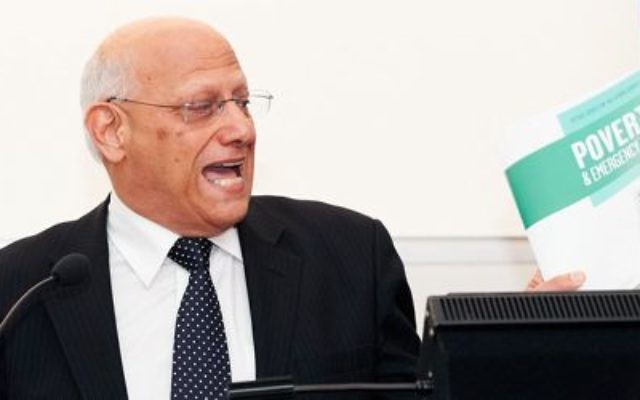Action needed to combat poverty
MORE than 20 per cent of Jewish households in Australia are living below or close to the poverty line and financial struggles are worsening in the country’s ultra-Orthodox community.
MORE than 20 per cent of Jewish households in Australia are living below or close to the poverty line and financial struggles are worsening in the country’s ultra-Orthodox community.
This is the headline finding to come out of the Poverty and Emergency Relief report, the latest instalment in the Monash University Gen08 series, launched at Jewish Care Victoria’s annual general meeting earlier this month.
The report was authored by Monash University’s Australian Centre for Jewish Civilisation Professor Andrew Markus and Dr Miriam Munz, and produced in partnership with Jewish Care Victoria.
Based on information gleaned from the Gen08 Survey, the 2011 Census and interviews with communal leaders and social workers, the report notes that while the Jewish population is significantly over-represented in top income brackets, 18.4 per cent of the Victorian Jewish population ranks in the low weekly income bracket, slightly more than the 15.7 per cent of the Jewish population in NSW also facing the low wage.
That means that close to 6500 Jews in Victoria aged 20 or above are low income earners in the range of $200-$399 a week, with an estimated 5000 people in NSW also in this category.
The worst affected are those who suffer from a disability; those over the age of 70; the long-term unemployed; single parent families; and those who are ultra-Orthodox.
The issue is particularly dire for ultra-Orthodox Jews because of the financial burden associated with leading a strictly Jewish life.
Costs particular to the Jewish community include increasing housing costs in the suburbs with the highest Jewish populations; high fees at Jewish schools; synagogue affiliation; kosher food and an emphasis on charity.
“There are a number of indicators that the situation is getting worse,” Professor Markus told The AJN.
“This raises the issue of whether the currently existing emergency relief programs are adequate.”
The report showed there is a high level of provision of care among organisations in both Melbourne and Sydney – with heaviest emphasis on the aged and people with disabilities – but there are structural issues that deserve some attention.
Emergency assistance is currently provided without high-level coordination between organisations and without full knowledge of the extent of the need.
Additionally, religious and political differences within Jewish communities have culminated in “divisions and personal animosities”, according to the report, between the bodies of the service provision sector.
TIMNA JACKS
Professor Andrew Markus launches the report at Jewish Care’s AGM.


comments